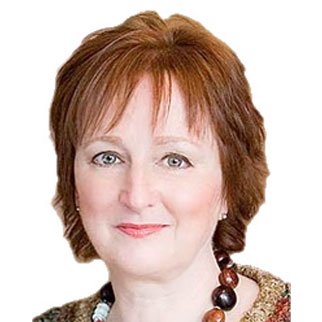
Deborah Gyapong, Canadian Catholic News
Deborah Waters Gyapong has been a journalist and novelist for more than 20 years. She has worked in print, radio and television, including 12 years as a producer for CBC TV's news and current affairs programming. She currently covers religion and politics primarily for Catholic and Evangelical newspapers.
Campaign takes aim at euthanasia, suicide bill
OTTAWA - The Euthanasia Prevention Coalition (EPC) has launched a postcard campaign to fight a proposed bill that would legalize euthanasia and assisted suicide.
EPC has distributed 10,000 cards that can be filled out, signed and mailed free of charge to members of Parliament to stop Bloc Quebecois MP Francine Lalonde’s private member’s Bill C-562 that she introduced June 12, a week before the House of Commons adjourned for a summer break.
Christ renewed in Eucharist, Pope tells Congress
{mosimage}QUEBEC CITY - By satellite video, Pope Benedict XVI told more than 55,000 pilgrims here June 22 about the wonders of the Eucharist.
“The Eucharist is our most beautiful treasure,” the Pope said via two giant screens that loomed over the historic Plains of Abraham at the closing Mass of the 49th International Eucharistic Congress.
We're all softies at heart
It's highly unusual that journalists clap at the end of a news conference, or that you can look around and see their faces shining with joy, or the odd tear in the eye.
Spending a little quiet time with Jesus
Adoration chapels set up throughout Quebec City to coincide with the 49th International Eucharistic Congress have proved surprisingly popular, an organizer told me the other day.
New priests bring new life to church
Twelve young men from Quebec, nine from new religious communities, were ordained at the 49th International Eucharistic Congress June 20, a sign of renewed life in the Catholic Church here.
There's plenty of elbow room
It's taken me about three days to get my bearings here at the Eucharistic City, the new name for the Expo City grounds for the duration of the 49th International Eucharistic Congress here in Quebec City
Rain or applause?
On the far end of the Pepsi Coliseum here in Quebec City, a white tent houses the media room for the International Eucharistic Congress. We have internet hook ups, a bank of computers for common use, tables with fresh flowers and a big screen TV to watch proceedings inside the Coliseum.
Political action needed to end food crisis
{mosimage}QUEBEC CITY - Cardinal Marc Ouellet urged a concerted effort by governments and the United Nations to solve a world food crisis that has seen the prices of rice and corn double and triple in recent weeks.
During his homily June 16 while celebrating the Eucharist at the 49th International Eucharistic Congress in Quebec, Ouellet noted that poor people are unable to buy these necessities at the exorbitant prices they are now going for.
You’ll know they are pilgrims by their backpacks
The 49th International Eucharistic Congress underway in Quebec City is a monumental feat of organization. About 11,000 pilgrims have registered for the event. The main venue is the Expo Cité grounds, a vast conglomeration of buildings and grounds that are geared for big events like the annual agricultural exhibition. It is vast enough to accommodate the huge traffic in buses, taxis and crowds on foot.
Apology opens door to new relations with First Nations
{mosimage}OTTAWA - With an apology from the Government of Canada to former students of Indian residential schools, the nation has opened itself up to forging a new relationship with its First Nations people, said Archbishop Gerard Pettipas.
“This is saying we want a new relationship with our First Nations people,” said the Grouard-McLennan archbishop, who represented the 50 Catholic entities — dioceses and religious orders — involved in the 2006 Indian Residential Schools Settlement Agreement, a $2.2 billion package that has dispensed “common experience payments” averaging $25,000 to every student. The Catholic entities are expected to contribute $80 million of the $120 million the churches agreed to pay, both in cash and in counselling, rehabilitation and reconciliation services.

